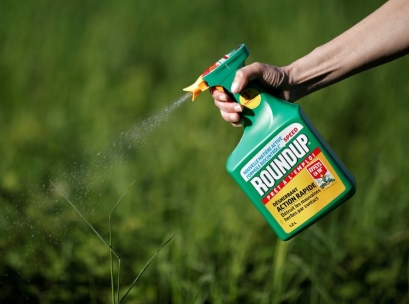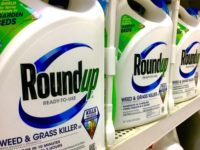
An Australian farmer has launched a legal action against Bayer AG’s agricultural chemicals unit Monsanto after being diagnosed with a type of cancer he claims was caused by its weedkiller.
NSW farmer Ross Wild was diagnosed with Hodgkin’s Lymphoma last year after using the weedkiller Roundup on his farming property near the border of NSW and Victoria since 1976, the ABC reported on Thursday.
He claims that long-term exposure to Roundup’s active ingredient, glyphosate, was to blame, ABC said.
A Bayer spokesman said the company was aware of media reports regarding a statement claim about glyphosate but had not yet been served a writ.
“We have great sympathy for any individual with cancer, but the extensive body of science on glyphosate-based herbicides over four decades supports the conclusion that Roundup does not cause Non-Hodgkin’s Lymphoma (NHL),” he said in a statement.
The spokesman said glyphosate had been extensively studied by scientists and regulators, and research had confirmed it was not carcinogenic.
“We firmly stand behind the safety of glyphosate-based products, and as a company devoted to life sciences, assure Australians that their health and the environment are our top priority.”
Wild will be represented by managing partner Tony Carbone of Carbone Lawyers, according to the report. The firm did not immediately respond to an email requesting comment.
Glyphosate is the world’s most widely used weedkiller. Monsanto’s Roundup was the first glyphosate-based weedkiller but is no longer patent-protected and many other versions are now available. Bayer does not provide sales figures for the product.
Bayer has said that decades of studies by the company and independent scientists have shown glyphosate and Roundup to be safe for human use.
Several regulators around the world have determined that glyphosate was not likely carcinogenic to humans.
The company said in a statement that as of July 11, it faced lawsuits brought by roughly 18,400 US plaintiffs who say glyphosate caused cancer.
Earlier this month, Bayer said a trial over the weedkiller scheduled to begin on October 15 in Missouri had been delayed.
The lawsuit is the latest of several to be put on hold as mediator Ken Feinberg tries to negotiate a settlement between the company and US plaintiffs after a California jury in August last year found that Monsanto should have warned of alleged cancer risks.














